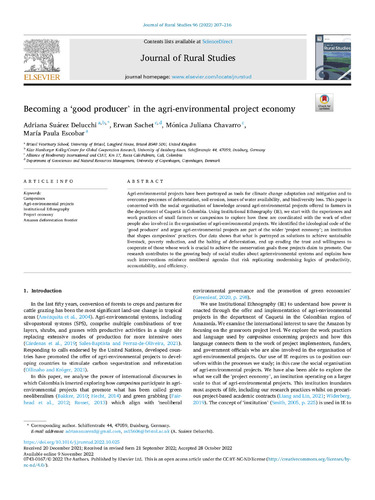Becoming a ‘good producer’ in the agri-environmental project economy
Agri-environmental projects have been portrayed as tools for climate change adaptation and mitigation and to overcome processes of deforestation, soil erosion, issues of water availability, and biodiversity loss. This paper is concerned with the social organisation of knowledge around agri-environmental projects offered to farmers in the department of Caquetá in Colombia. Using Institutional Ethnography (IE), we start with the experiences and work practices of small farmers or campesinos to explore how these are coordinated with the work of other people also involved in the organisation of agri-environmental projects. We identified the ideological code of the ‘good producer’ and argue agri-environmental projects are part of the wider ‘project economy’; an institution that shapes campesinos’ practices. Our data shows that what is portrayed as solutions to achieve sustainable livestock, poverty reduction, and the halting of deforestation, end up eroding the trust and willingness to cooperate of those whose work is crucial to achieve the conservation goals these projects claim to promote. Our research contributes to the growing body of social studies about agrienvironmental systems and explains how such interventions reinforce neoliberal agendas that risk replicating modernising logics of productivity, accountability, and efficiency.

